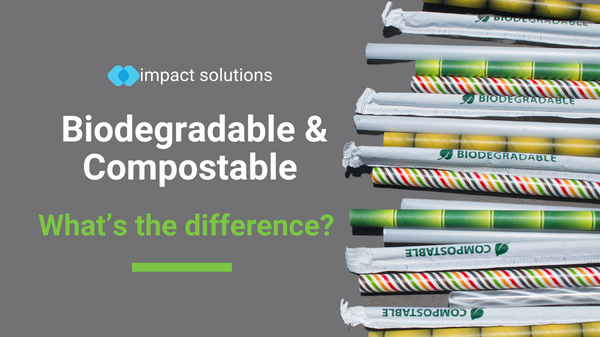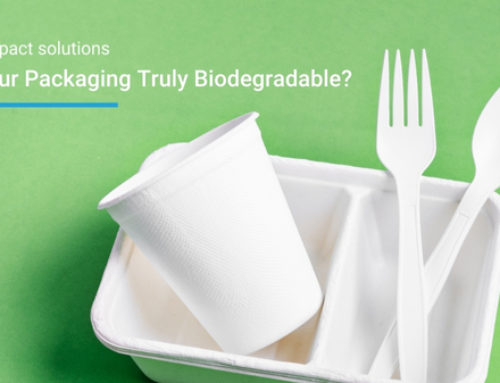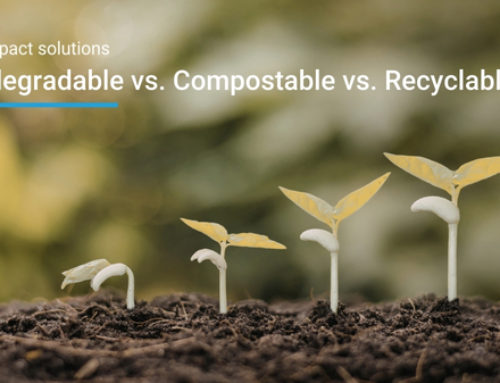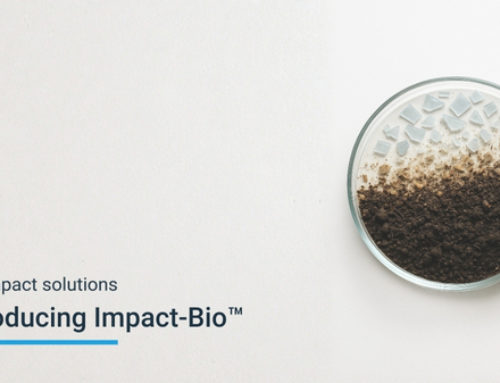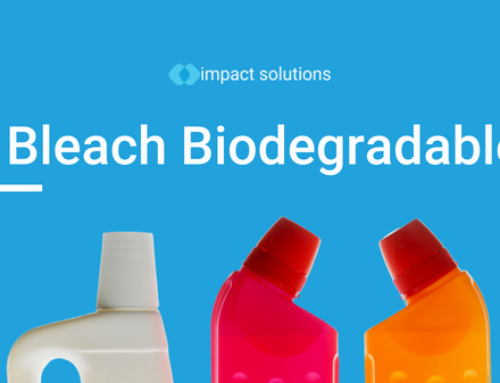The terms ‘biodegradable’ and ‘compostable’ have been causing confusion for some time. Designed to reduce waste, advancements in biodegradable packaging have been made within industry in recent years, they remain confusing terms with little clarity.
Biodegradable or Compostable – Definition by Nature
Biodegradable can describe the process that occurs when natural organic matter breaks down in the environment by bacteria or other living organisms.
Compostable is referring to one of the environments in which biodegradation can take place (compost), in addition to other environments where biodegradation can take place such as sea water, fresh water, soil, wastewater sludge and landfill.

Although both terms are used as labels on packaging in similar ways – the two terms are not interchangeable or comparable by nature. For example, compostable packaging is biodegradable but not all biodegradable packaging is compostable, as it may have been designed to biodegrade in a different environment to compost I.e., seawater.
Biodegradable or Compostable – Definition by Packaging
When plastic packaging and materials are described as being biodegradable – they must consider three key stages; degree of degradation, timespan of degradation and defined surrounding conditions of degradation (I.e., composting, marine, landfill). Testing the material under advised biodegradability test methods can simulate various end of life scenarios and assess its degradation potential.
Biodegradable plastics that are considered compostable require a composting environment, either an at home composting bin or disposed of into a residential bin that is sent to industrial composting facilities. Despite compostable packaging eventually breaking down over time without being physically placed in a home compost bin or sent to an industrial composting facility – this type of packaging would unlikely be broken down within the specified time frame for it to be considered biodegradable packaging.
The Future for Biodegradable Packaging?
Although, biodegradable packaging can be designed with the predicted environmental fate in mind (ultimately targeting more ways to combat waste) it is only a solution to non-biodegradable products if biodegradability testing has been conducted to provide proof of its end-of-life state. Assessing your products end of life can provide clarification to your customers through confidently providing accurate and clear disposal information on your packaging. Further, it provides insight into the timeline of which it will take for your product to biodegrade, gaining further insight into your product. On a national scale, this information can lead to better waste management and improvements in the volume of waste in the environment.
To find out more about biodegradability and composting testing, Impact Solutions can run a full range of tests on biodegradable and compostable materials for all your development needs. Get in touch to speak with our technical team who can advise you on your next steps.
Call us on 01324 489182 or email info@impact-solutions.co.uk to speak with our technical team.
Sources
A review of standards for biodegradable plastics (publishing.service.gov.uk)

